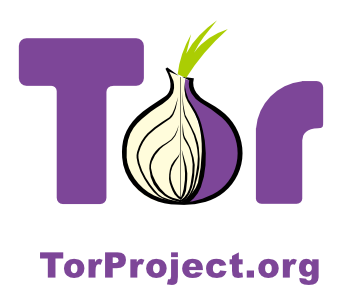Kyle Roe
In an age where governments are turning our phones and computers into tools for espionage on a scale that seems to violate our Fourth Amendment rights, sometimes it seems that nothing can limit their invasive surveillance. But not if Tor has anything to say about it.
Tor is a completely anonymous, easily downloadable web browser that protects its users’ activities and identities via “onion routing,” where information is protected by layers of encryption and sent to several random successive computers, taking off a layer of encryption with each one until it goes through the final relay, or exit node, to its destination. Originally developed by the American government, the Tor Project made the browser available to the public. Since then it has been used with both goodwill and malicious intent. Its user base includes terrorists and criminal organizations, but also those fighting censorship and escaping domestic abusers. It is a double-edged sword, but is the trade-off worth it?
On one hand, you have ISIS using Tor to hide their communications as well as criminal organizations ranging from child pornography rings to, allegedly, drug cartels who peddle their illicit products across anonymous online marketplaces. This is the dark side of Tor, a seediness that gives the “dark web” its name. However, Tor cannot cover all your tracks. ISIS and other criminal organizations are made up of individual people, and individual people make mistakes. According to Bloomberg, investigators looking to intercept ISIS’s online communications search for a “weakest link” in their computer network because, according to the spies, “a single unsecured computer can be used to open up the rest.” Investigators also enter dark net marketplaces to do reconnaissance. For example, Brazilian authorities busted a Tor-based child pornography ring this October by entering anonymous chat rooms disguised as pedophiles and slowly gathering information on the operation. So law enforcement has had some success against Tor using outside investigative techniques. Despite this, the dark web remains a safe place to communicate anonymously with others.
Proving this are Tor users who need anonymity to circumvent and fight government censorship and who are protesting invasive surveillance policies here in the U.S. Activists in countries like China, Iran, Russia, and Iraq have taken to Tor to voice their dissident opinions after social networking sites have been filtered by their governments. This way they find out what is going on in the outside world, how other countries function, and what freedoms their governments are denying them. Then, if they want to make a change, they can communicate with other like-minded people and publish anything they want. Of course, the person on the other end could be a government agent, but activism in oppressive countries will always carry that risk. Tor is still the safest way to express one’s views anonymously. Additionally, Edward Snowden has endorsed Tor as a way to circumvent the NSA’s invasive cybersecurity, and the NSA itself has admitted having problems with Tor encryption, calling it, “the King of high secure, low latency Internet Anonymity” in a leaked PowerPoint presentation. Julian Assange launched WikiLeaks from documents obtained from a Chinese activist who was surprised to find his computer was an exit node for the Tor network. Tor has also been used by domestic abuse victims to escape their abusers who have access to all their passwords and online accounts.
Even though Tor has garnered a lot of negative attention, it has been on the front lines of activism against oppressive and over reaching governments for years. Tor may have some use for criminal organizations, but its greatest potential is as an actor of change. It won’t cover your tracks completely, since activism requires you to get off the computer once in a while, but it is still the best way to stay anonymous on the internet. As university students, we have a chance to voice our political opinions for the first time and are surrounded by thousands of like-minded peers. An old Chinese proverb says, “When the winds of change blow, some people build walls and others build windmills.” I hope you all build windmills, and that they tower over everyone else’s walls.












Comments are closed.